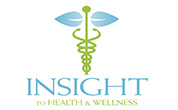Stroke Center in Vanderbilt - Naples, FL

What Is a Stroke?
Also known as a brain attack or cardiovascular accident (CVA), a stroke occurs when the blood supply to the brain becomes disrupted. According to the Centers for Disease Control and Prevention (CDC), about 795,000 people in the U.S. experience a stroke each year.
There are three different types of stroke:
- Ischemic: The most common type of stroke, arteries in the brain narrow or become blocked
- Hemorrhagic: A blood vessel in the brain leaks or ruptures (brain hemorrhage)
- Transient ischemic attack (TIA): Often called pin strokes or mini strokes, blood clots block blood flow to the brain for approximately five minutes
Strokes are considered a life-threatening emergency, and by recognizing the signs of a stroke and immediately calling medical professionals, you may save someone’s life. To find out more information about stroke treatment in Vanderbilt - Naples, call (941) 845-6555 or contact Dr. Nancy Vance online.
Stroke Causes and Risk Factors
The two ischemic stroke subtypes are thrombotic and embolic, and the two hemorrhagic stroke subtypes are intracerebral and subarachnoid. These subtypes each have different causes:
- Thrombotic strokes occur when plaque, a substance made of fat, cholesterol, and calcium, forms a blood clot in one of the blood vessels inside the brain.
- Embolic strokes occur when a blockage called an embolus—which can be an air bubble, plaque, or another object—forms somewhere in the body and is carried to an artery in the brain via the bloodstream.
- Intracerebral hemorrhages occur due to bleeding from the blood vessels within the brain; high blood pressure, trauma, or anticoagulant medications can cause the blood vessel in the brain to burst.
- Subarachnoid hemorrhages occur due to bleeding in the space between the brain and the membranes that cover it (meninges). Subarachnoid strokes are caused by head trauma, or by either a large bulge in an artery (aneurysm) or a tangle of abnormal blood vessels (arteriovenous malformation) bursting. Subarachnoid hemorrhages may also be accompanied by the blood vessels in the brain widening and narrowing (vasospasm), which can increase the risk of ischemic stroke.
The risk of experiencing a stroke is highest among African-American and indigenous American adults. Other risk factors for strokes may include:
- Having a family history of stroke or heart attack
- Being over the age of 55
- Smoking or exposure to secondary smoke
- Excessively drinking alcohol
- Being overweight or physically inactive
- Suffering from stress or depression
- Preeclampsia/eclampsia in pregnant people
- Hypertension
- High cholesterol
- Diabetes
- Migraines with aura
- Irregular heart rhythm (atrial fibrillation)
- Preexisting cardiovascular disease
- Obstructive sleep apnea (OSA)
While some of these risk factors may be unavoidable, addressing the lifestyle habits that can be changed and conditions that can be treated may reduce your risk of stroke.
Stroke Symptoms
Symptoms of a stroke can happen suddenly and without warning, and commonly include a severe headache, blurred or double vision, sudden dizziness, or a loss of balance or coordination.
To identify whether or not you or someone else may be having a stroke, use the F.A.S.T. test:
- Face: Is side of the face drooping?
- Arm: Is it more difficult to raise one arm than the other?
- Speech: Is speech slurred, and can simple sentences be repeated?
- Time: Call emergency personnel immediately if these symptoms are present!
While the aforementioned symptoms are common in people of all sexes, a study done at the University of Texas Health Center reported that as many as 28% of people who were designated female at birth who suffered strokes reported these additional symptoms:
- Difficulty breathing
- Fainting or overwhelming feeling of weakness
- Hallucinations
- Seizures
- Sudden behavior changes or agitation
- Nausea or vomiting
- Hiccups
The severity of symptoms will depend on which part of the brain the stroke affects and how much brain tissue is damaged. If left untreated, the complications of a stroke can include:
- Weakness, numbness, pain, or paralysis
- Difficulty speaking or problems with language
- Trouble swallowing
- Poor balance or clumsy movement
- Memory and cognitive issues
- Personality or emotional changes, such as being withdrawn or depressed
- Problems with bladder or bowel control
- Vision loss
It is important to know that prompt and proper treatment of stroke can help avoid these complications.
Diagnosing a Stroke
To diagnose a stroke, a healthcare professional in an emergency department or a stroke center will take a brief medical history and ask detailed questions about your symptoms, as well as measure your blood pressure and heart rate. Other tests to check for the presence of stroke-causing cardiovascular abnormalities may include:
- Blood tests to detect toxic chemicals and infections, or to determine blood sugar levels
- Computerized tomography (CT) scan of your brain to check for blockages or hemorrhages
- Magnetic resonance imaging (MRI) scan to detect damaged brain tissue
- Carotid ultrasound to check for plaque in the neck arteries
- Cerebral angiogram, which takes a detailed picture of blood vessels in your brain
- Echocardiogram, which creates a detailed image of your heart to detect blood clots
Treatment for Strokes
Depending on the kind of stroke you experienced, there are several different treatment options available. A stroke specialist will help you decide which treatment is best for your condition.
Ischemic Stroke (Including TIA)
To treat any kind of ischemic stroke or TIA, blood flow must be quickly restored to your brain. Common emergency medications can include aspirin, which prevents further blood clots from forming, and injection of tissue plasminogen activator, which causes the body to dissolve existing blood clots. In some cases, medicine may be delivered directly into your brain via a catheter, while in others, the clot may be mechanically removed. To prevent further ischemic strokes, your healthcare provider may also recommend a surgical procedure to remove plaque from the affected artery.
Hemorrhagic Stroke
Emergency treatment for a hemorrhagic stroke focuses on controlling the bleeding and reducing pressure on the brain. In most cases, your body will absorb the spilled blood, but surgical procedures that may be necessary to address large hemorrhages can include placing a clip on the end of the aneurysm (aneurysm clipping) or inserting a tiny platinum coil into the aneurysm to prevent blood from entering it (endovascular coiling).
Life After a Stroke
After emergency procedures, stroke treatment focuses on helping you regain as much strength and independent function as possible. This can be done through a rehabilitation program, which may include speech, occupational, and physical therapy.
Preventing further strokes is also crucial; some of the most important stroke prevention methods include:
- Monitoring and controlling blood pressure, blood sugar, and cholesterol levels
- Quitting smoking, and avoiding second-hand smoke
- Treating health problems like diabetes that can predispose a person to stroke
- Maintaining a healthy weight
- Exercising
- Eating a healthy diet low in sodium and rich in potassium, fiber, and antioxidants
- Limiting alcohol use
Medications like blood thinners and aspirin may be prescribed by a healthcare provider to prevent a second stroke if the first one was ischemic.
Request Your Appointment Today
It’s important to know that strokes are preventable and treatable. If you suspect that you or someone you know is suffering a stroke, call for emergency help immediately. For more information on strokes in Vanderbilt - Naples, FL, call (941) 845-6555 or contact Dr. Nancy Vance online.
Insight to Health & Wellness, Inc.
Address
694 8th Street NorthNaples, FL 34102
(941) 845-6555
www.insight2hw.com


